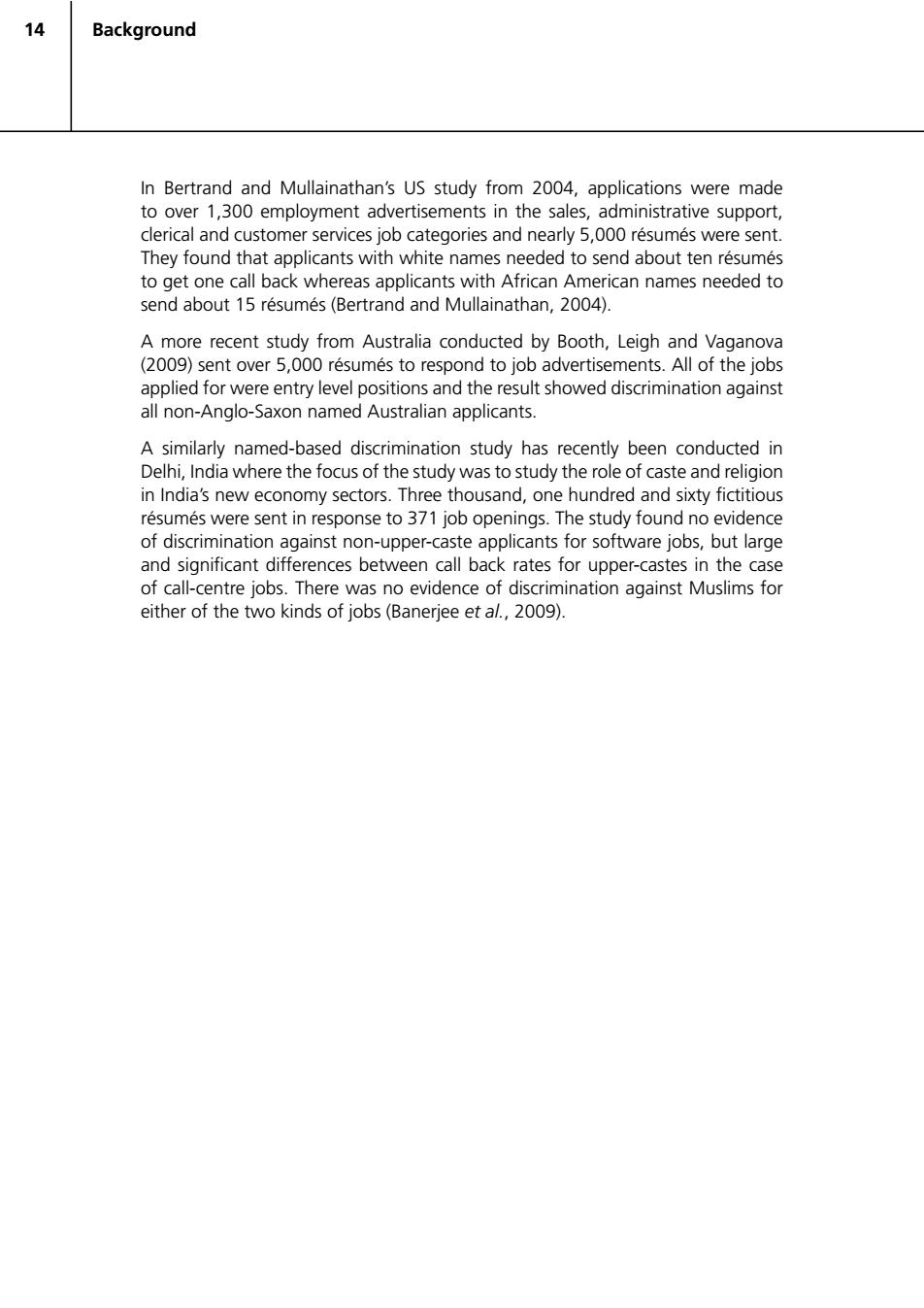正在加载图片...

14 Background In Bertrand and Mullainathan's US study from 2004,applications were made to over 1,300 employment advertisements in the sales,administrative support, clerical and customer services job categories and nearly 5,000 resumes were sent. They found that applicants with white names needed to send about ten resumes to get one call back whereas applicants with African American names needed to send about 15 resumes (Bertrand and Mullainathan,2004). A more recent study from Australia conducted by Booth,Leigh and Vaganova (2009)sent over 5,000 resumes to respond to job advertisements.All of the jobs applied for were entry level positions and the result showed discrimination against all non-Anglo-Saxon named Australian applicants. A similarly named-based discrimination study has recently been conducted in Delhi,India where the focus of the study was to study the role of caste and religion in India's new economy sectors.Three thousand,one hundred and sixty fictitious resumes were sent in response to 371 job openings.The study found no evidence of discrimination against non-upper-caste applicants for software jobs,but large and significant differences between call back rates for upper-castes in the case of call-centre jobs.There was no evidence of discrimination against Muslims for either of the two kinds of jobs(Banerjee et al.,2009).14 In Bertrand and Mullainathan’s US study from 2004, applications were made to over 1,300 employment advertisements in the sales, administrative support, clerical and customer services job categories and nearly 5,000 résumés were sent. They found that applicants with white names needed to send about ten résumés to get one call back whereas applicants with African American names needed to send about 15 résumés (Bertrand and Mullainathan, 2004). A more recent study from Australia conducted by Booth, Leigh and Vaganova (2009) sent over 5,000 résumés to respond to job advertisements. All of the jobs applied for were entry level positions and the result showed discrimination against all non-Anglo-Saxon named Australian applicants. A similarly named-based discrimination study has recently been conducted in Delhi, India where the focus of the study was to study the role of caste and religion in India’s new economy sectors. Three thousand, one hundred and sixty fictitious résumés were sent in response to 371 job openings. The study found no evidence of discrimination against non-upper-caste applicants for software jobs, but large and significant differences between call back rates for upper-castes in the case of call-centre jobs. There was no evidence of discrimination against Muslims for either of the two kinds of jobs (Banerjee et al., 2009). Background